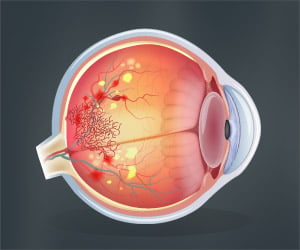Risk of retinopathy of prematurity (ROP), an eye disease that can even cause blindness is higher among premature infants with low levels of blood platelets.

‘Risk of blindness is higher among premature babies with low levels of blood platelets.
’
Read More..




"I believe this paves the way for completely new therapeutic possibilities and also for new research domains for both pathological and normal vascular development," says Ann Hellstrom, professor of pediatric ophthalmology at Sahlgrenska Academy, University of Gothenburg, Sweden, and a chief physician at Sahlgrenska University Hospital.Read More..
Retinopathy of prematurity (ROP) mainly affects children born before 28 weeks of pregnancy whose retinal vessels have not finished growing at birth. The children run the risk of permanent vision impairment and in severe cases blindness due to retinal detachment.
The current study points to a correlation between low levels of platelets, whose main task in adults is to inhibit bleeding in blood vessels, and a fourfold increased risk of severe ROP in infants.
Observational studies on a total of 202 premature babies with ROP have been conducted in Gothenburg and Stockholm.
The experimental parts of the study, conducted at Harvard Medical School in Boston, indicate that the pathological vascular development in the retina of young mice increased by 30 percent when platelet levels were lowered by means of antibodies. When platelets from adult mice were introduced instead, the pathological vascular development declined by 19 percent.
Advertisement
Both Ann Hellstrom and her colleague in Boston, Lois Smith, maintain that the findings in the study point to a new direction and potential strategy for treating premature infants at risk of vision impairment caused by ROP.
Advertisement
Source-Eurekalert















